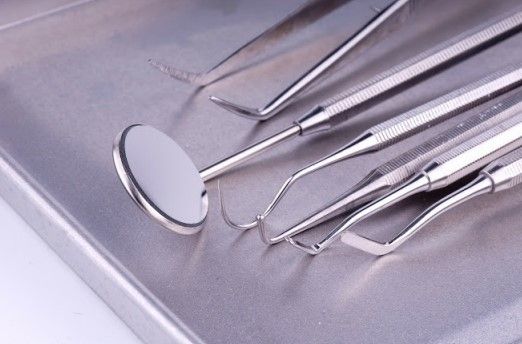
Many people who suffer from dental infections choose to undergo root canal therapy to clean out the infected root tissue, eliminating the need for an extraction. However, if you’ve already gone this route and still experience trouble with the treated tooth, you may need to move on to another type of procedure called an apicoectomy.
You’ll feel better about the prospect of apicoectomy surgery once you understand how this treatment can save a troublesome tooth, when you should schedule one, and what to expect before, during, and after the procedure. Sink your teeth into these answers to some frequently asked questions about apicoectomy treatment.
How Does an Apicoectomy Differ From Root Canal Treatment?
A standard root canal treatment addresses tooth infections from the top surface of the tooth. The oral surgeon opens the tooth, cleans out the infected pulp from the root canal, and sterilizes the now-empty root canal. The surgeon then fills the root canal with a substance called gutta-percha before sealing the tooth with a crown.
By contrast, an apicoectomy addresses a tooth infection from the very bottom of the tooth. In this procedure, the oral surgeon makes a hole in the gums in the area of the tooth’s root tip, where the infection lies. The surgeon then removes the root tip and fills the gap left behind without disturbing the rest of the tooth.
When Do Oral Surgeons Recommend an Apicoectomy?
Many apicoectomy procedures occur because root canal treatment has failed to resolve issues with an infected tooth. Root canal therapy stands as the first line of defense in cleaning out an infected tooth, but a pocket of infection may linger at the root tip. If a second root canal procedure can’t fix this problem, consider an apicoectomy.
Your oral surgeon may recommend going ahead with an apicoectomy without first attempting a second root canal procedure. For instance, if that second procedure would ruin costly restorative hardware, an apicoectomy offers a less destructive alternative. Complications such as calcium deposits may also make an apicoectomy necessary.
What Can You Expect From an Apicoectomy?
Before you have your apicoectomy, your oral surgeon will take X-rays, examine your medical history, and instruct you on any steps you might need to take to prepare yourself for the surgery. When you come in for the actual procedure, you’ll receive an oral anesthetic at the site of the apicoectomy.
During the apicoectomy, your oral surgeon will use the X-ray data to pinpoint the exact spot to make a hole in your gum tissue. After making this hole, the surgeon will remove both the root tip and any surrounding infected tissue. After applying the filling to the stump of the root tip, the surgeon closes the hole with stitches.
How Can You Ease Your Recovery From an Apicoectomy?
Although your apicoectomy should heal naturally and without complications, you may still experience postoperative swelling, bruising, and discomfort during the early stages of recovery. Rest, ice, and over the-counter anti-inflammatory or painkilling drugs will ease your path to full recovery.
Don’t panic if you develop numbness at the treatment site. This natural response to the surgery can take days or weeks to resolve itself. If you continue to have numbness, however, you should let your oral surgeon know.
You will return to your oral surgeon several days after surgery to have the stitches removed. Within a couple of weeks, any lingering pain or swelling in your gums should fade away.
The San Diego Center for Oral & Maxillofacial Surgery performs a wide range of oral surgery procedures. If you have a tooth that needs more help than a simple root canal procedure can offer, contact our clinic to schedule an appointment and discuss treatment options.
